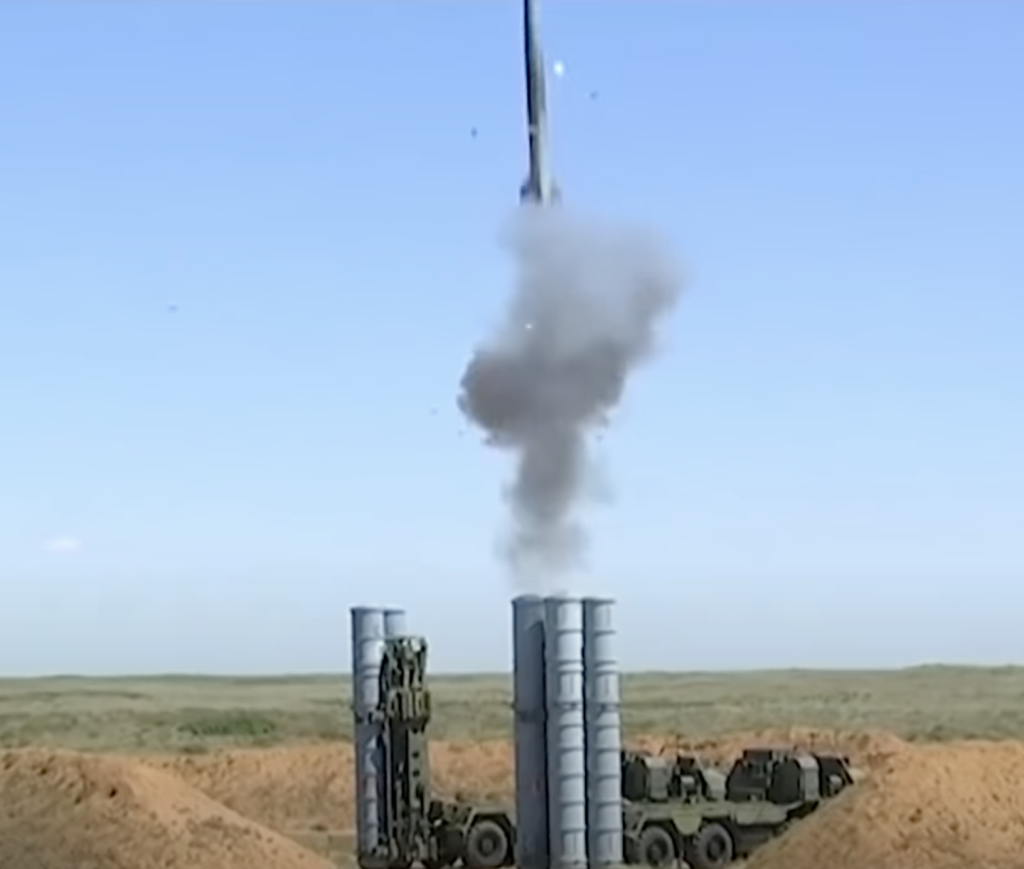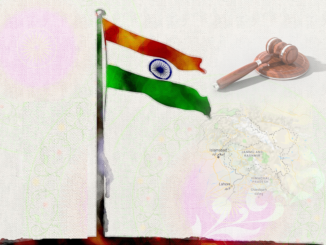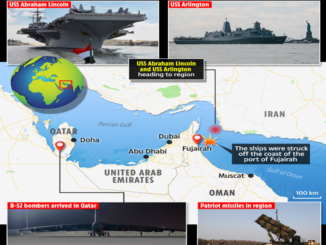
Nothing in the world of international affairs happens in isolation, nor should it be analyzed as such. Turkey had found itself in a situation similar to the one India finds itself in currently. For the former, it was being caught between the US F-35 and the Russian S-400 Surface to Air Missile (SAM) system. Turkey, having decided to exercise its right to choose as a sovereign state, moved forward with its S-400 purchase; its status as a NATO member gave rise to legitimate concern that a Russian weapons system integrating with the F-35 would be undesirable. India finds itself on the precipice of the same cliff; the ‘net security provider’ for the ‘Indo-pacific’ and a major pillar of the US Indo-Pacific Strategy, it had positioned itself as the USA’s biggest ally but it also sought to buy the same Russian S-400 that had resulted in sanctions on Turkey.
The US sanctioned Turkey its decision to purchase the S-400 and that decision spoke volumes on how, if a state’s action did not coincide with the interests of the US, there would be repercussions. It also brings brought into consideration the fact that favorable treatment being meted out was only till it served their strategic needs. At one point, it was believed that a waiver could be given to Turkey as it was a NATO member, but that never materialized. Similarly, there is a widely held belief that India will get a waiver for the Countering America’s Adversaries Through Sanctions Act (CAATSA) as there seems to be bipartisanship consensus on the matter; a handful of lawmakers had written to the President as well in this regard, as the decision rests solely with him. No final decision has been taken so far, as said by Donald Lu, Assistant Secretary of State for South and Central Asia.
This was the understanding before February 2022. Then, Russia attacked Ukraine and the chances of a waiver might be diminishing, if it were to materialise at all. Before the Russian attack on Ukraine, one S-400 battery had been delivered to India and was being prepared for proper deployment in its Punjab province, bordering Pakistan. That battery has not been made operational yet, even though it was expected to become active in early 2022; and the future of the remaining four could be bleaker if India chooses to fulfill its Indo Pacific Strategy duties. Whether that will happen or not is debatable.
India abstained from multiple votes in the international rules based order (UNSC, UNGA and UNHRC) resolutions that condemned the ‘Russian invasion’ and urged the cessation of all such activities, despite calls by US Secretary of State, Antony Blinken, to convince the Indian leadership otherwise. An abstention means choosing not to vote, but in the realm of great power politics and an anarchic realist world it means more than that. An abstention is in many ways a tacit step towards the other side. It is analogous to someone calling you in the heat of battle for assistance, and you respond with ‘No, I am a bit busy, maybe tomorrow.’ The US would be much more vigilant on India now, monitoring all its military purchases even more carefully and observing with a finer eye if it really can do what the US wants it to do against China. The reason being that even with China, India has a longstanding history of bilateral trade; the figure stood at more than $125 billion USD in 2021 and this translates into a major Indian interest that could deter it from taking major decisions which would do away with the economic benefit it is reaping.
For a long time, India has still tried to manage this balancing act between eagle and bear. It indefinitely postponed, for the time being, the DefExpo2022 citing logistical issues. However, a look at the exhibitors, invited companies, and planned events clearly lays bare power politics rearing its head. Foreign exhibitors were expected from the US, Russia, France, and Israel. Also, a bilateral military industry conference with Russia was planned to take place during the event, which would have been attended by top defense ministry officials. The optics and the message that it would have given, as well as the chances of Western exhibitors expressing discomfort in attending alongside Russian ones, seem like more probable causes for postponement than the stated logistical concerns. The chances of this are high, as Russian participation in many Western platforms has since been banned; even Russian cats have not been spared and may no longer participate in international competition.
Secretary of State Antony Blinken, with his call to India before the UN vote, showed that India will be facing similar pressures in future situations, including continuing with its S-400 purchase. This demand to India of taking the US side and pushing itself away from Russia was echoed by Donald Lu, when he said that “India is a really important security partner of ours now…we value moving forward that partnership and I hope that part of what happens with the extreme criticism that Russia has faced is that India will find it’s now time to further distances.” This creates an image where the security partnership is contingent on India distancing itself from Russia, meaning that India’s balancing act has a time limit.
When the balancing ceases, and regardless of the side India finds itself on, it will present some very important changes in the strategic environment surrounding Pakistan, such that must be explored in comprehensive depth. In a broad sense, there would be opportunities to enhance ties with Russia further and increase collaboration in different sectors where space is left by India, or move freely without having India propped up as the security provider of the region receiving waivers and preferential treatment.
Keeping the S-400 deal and the India-Russia longstanding ties in context, the Russian Envoy-designate to India Denis Alipov said that the new sanctions on Russia will not affect the S-400 deal and that it should stay on track. For this to be true, India would have to utilize alternate modes or channels of payments if it seeks to continue with this defense acquisition, since major international payment systems have been restricted and financial transactions with Russia are now more difficult. The chances of continuing with the S-400 system are more than India living up to what the US dreamed for it to be. Vice Chief Air Marshal Sandeep Singh of the Indian Air Force said. “We know the geopolitical situation is difficult (currently). Our relations with Russia will continue.”
When the world is viewed and operated as a zero-sum game where power balancing is done regularly, a refusal to say ‘yes’ means an implied ‘no’. Pakistan was most familiarized with this notion through the famous ‘You are with us or against us’ phone call. The way events have shaped up suggests that India might be finding itself in that situation, having to make a clear choice. The phone calls India received from the US before those votes substantiates this idea. Push might come to shove at a certain point. The possibility of India falling on the Russian side seems higher if the IAF Vice Chief’s statement is kept in mind and the fact that the cancellation of defense exhibition might carry less weight than multiple abstentions, first at the UNSC, then the UNGA, and then at the UNHRC. This tips the scale towards the sanctioning end rather than the waiver end for the US envoking CAATSA against India. India faced a test, to rise up to the challenge and stand by the US, and it chose to remain home. This can very easily initiate a rethink of what the US envisions for India and it has probably already begun. One thing is most likely certain: the balancing act would predictably be coming to an end. Thus, policy experts, lawmakers, and concerned military officials should make themselves aware of the probable outcomes touched upon above and prepare themselves accordingly in order to extract the most benefit from the regional strategic environment that could be changing soon as a consequence of the Russian attack on Ukraine.
![]()




Keep it up Faraz. Good analysis.